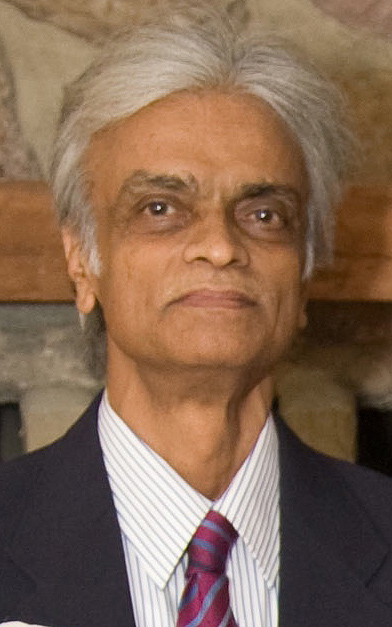Virginia Tech names director of energy initiatives

Satish V. Kulkarni, a Virginia Tech alumnus who has led international and national collaborations related to energy, security, and the environment for more than three decades, has been named the director of energy initiatives for the university.
The Office of the Vice President for Research and the Institute for Critical Technology and Applied Science jointly created the position in recognition of the societal need for advanced technological solutions to energy concerns. The director will promote energy-related research and initiatives across the university.
Kulkarni, of Arlington, Va., will join Virginia Tech on March 30, working both at the new Virginia Tech Research Center – Arlington and on the Blacksburg campus. He was until recently associate vice president for new initiatives and partnerships at Georgetown University and, before that, the counselor for science, technology, environment and health affairs at the U.S. Embassy in New Delhi, India with the Department of State. Earlier, on deputation from Lawrence Livermore National Laboratory (LLNL), he was executive director of Laboratory Programs/Laboratory Management in the Office of the President at the University of California. He was previously the division leader of the New Technologies Engineering Division at LLNL.
"Dr. Kulkarni will provide energetic leadership, vision, and direction to the coordination, facilitation, and submission of large-scale multidisciplinary and interdisciplinary research efforts across the university and in partnership with other universities and non-university research organizations," said Robert Walters, vice president for research at Virginia Tech.
"Dr. Kulkarni certainly has the knowledge, experience, and commitment to create an integrated vision for energy research at Virginia Tech," said Roop Mahajan, director of the Institute for Critical Technology and Applied Science.
Kulkarni said, "The greatest challenge we face today is energy security and the issues that surround it – which include economics, policy, and societal impact. To be able to play a role in helping address that challenge by integrating faculty expertise and the multifaceted capabilities of Virginia Tech for a sustainable future, and seeing my alma mater as a leader in energy research, is truly exciting and satisfying."
At Georgetown, Kulkarni's activities included developing joint projects with several national laboratories and Virginia Tech, and engagement with the Chesapeake Crescent Initiative, a Virginia, Maryland, and Washington, D.C., consortium to bring together the capabilities of local universities, private enterprise, and government to create opportunities in life science, energy, and security. He also played a key role in the development of the university’s strategy for engagement with India.
As part of his assignment with the U.S. Embassy in New Delhi, Kulkarni helped facilitate the interaction between U.S. and Indian scientists and engineers in the nuclear energy/science field. He also was responsible for the climate change portfolio and worked closely with the White House Council on Environmental Quality in launching the Asia-Pacific Partnership for Clean Development and Climate in India.
At the University of California, he helped develop a strategy that incorporated the university's 10 campuses and three national laboratories (Berkeley, Los Alamos, and Livermore), and identified science and technology intersection areas for joint initiatives. As a division leader at LLNL, he transformed the former nuclear test division to one with a multiprogram role in homeland security, nonproliferation, energy and environment, and biosciences.
He has a Bachelor of Science degree from Calcutta University, a Master of Science degree from the India Institute of Technology in Kanpur, and earned a Ph.D. in engineering mechanics from Virginia Tech in 1973 and was recently inducted into the Academy of Engineering Excellence at Virginia Tech for “meritorious lifetime achievements and contributions to the engineering profession.”
Dedicated to its motto, Ut Prosim (That I May Serve), Virginia Tech takes a hands-on, engaging approach to education, preparing scholars to be leaders in their fields and communities. As the commonwealth’s most comprehensive university and its leading research institution, Virginia Tech offers 240 undergraduate and graduate degree programs to more than 31,000 students and manages a research portfolio of $513 million. The university fulfills its land-grant mission of transforming knowledge to practice through technological leadership and by fueling economic growth and job creation locally, regionally, and across Virginia.
Related Links
- Virginia Tech launches transatlantic partnership to advance city-university collaboration for urban sustainability
- National Science Foundation designates the Center for Energy Harvesting Materials and Systems an Industry/University Cooperative Research Center
- Virginia Tech partner in 'Energy Innovation Hub' to pioneer energy-efficient building designs




